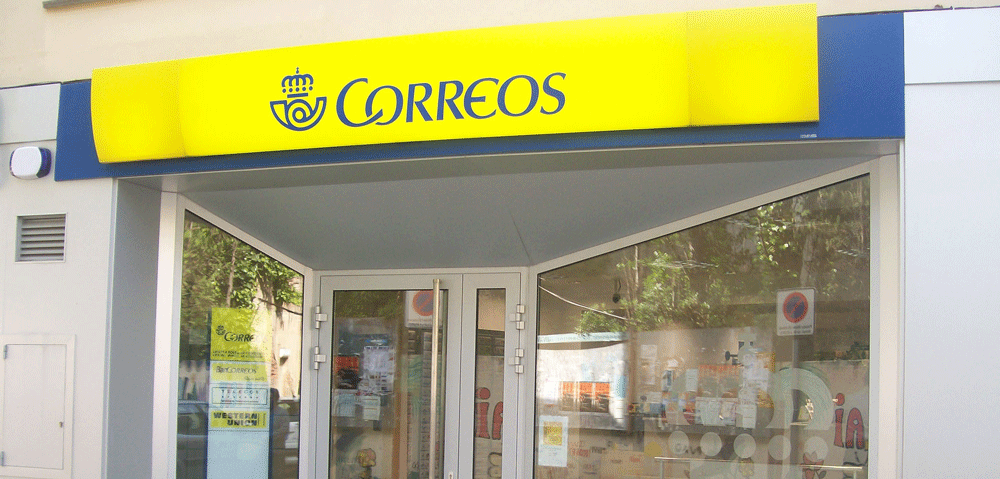Correos is showing how offering advanced delivery options means winning more business from Amazon. Marek Różycki (Last Mile Experts) and Ian Kerr (Postal Hub Podcast) analyze how Correos’s delivery and retail networks meet Amazon’s needs.
Correos and Amazon have signed a three-year agreement with the goal that Amazon customers in Spain receive an even better customer experience.
Amazon first partnered with Correos in 2015 to enable Amazon shoppers to use Correos’s 2,400 post offices as click-and-collect points. These deals show how strong Correos’s out-of-home (OOH) delivery network is, with its 8,700 service points and some 5,000 CityPaq lockers, along with over 30,000 postmen who are supported by interactive delivery management (IDM).
Growing issues with labor shortage mean OOH will become an important alternative to traditional ‘to door’ delivery – to the point where it is part of the range of services any e-commerce consignee will expect to have. Correos’s approach is interesting in that they offer ‘regular’ lockers (APMs) in public places as well as ‘residential parcel lockers’ (RPLs) in apartment buildings or closed estates.
We feel that it is this selection of access points coupled with to-door/IDM capability which has made Correos Amazon’s choice in Spain.
So what are the implications for other posts and carriers?
Up until recently, we would have said that there is too much hype over Amazon entering the last mile, in its own right, as a carrier and competitor. This has changed, given recent experience in the USA or some European markets, but we still feel that posts and carriers can minimize the risk of Amazon’s direct entry into their market by better understanding when and why they would do this.
First of all, despite its huge capabilities, Amazon can’t do everything, everywhere, and will need to prioritize. As its key goal is customer experience (CX), it will prioritize its own operations as follows:
• Where capacity is not available (as was the case in the UK, Amazon’s first direct entry European market);
- Where customer experience is lacking; poor quality or lack of customer-centric value-added services (as was the case in the UK);
- Where costs are unacceptably high or there is too much dependence on one player (e.g. La Poste Group in France);
Consequentially, any post or carrier that embraces B2C CX and, in particular, creates a leading PUDO/APM network, will have a strong, if not unassailable, position, should Amazon review last-mile options in that market. We must not forget that posts have an inherent advantage given their Universal Service Obligation, which usually means they already have the widest delivery and retail networks.
Planning to be the only good choice for Amazon
Despite the fact that few of the big posts have been able to make this work, the plan is actually quite simple:
- Leverage your access point network. Marek’s view is that opening the network up as a carrier agnostic infrastructure enables faster growth (and proximity) but also makes it more difficult for others to set up alternative networks;
- Ensure that you have best-in-class IDM capability (hardware and software) and a range of delivery options that meet CX requirements in your market;
- Be as obsessed about CX as Amazon is and ensure that this thinking permeates throughout your organization;
- Continuously invent and simplify, so that your services are in line with current market demands.
But is it worth the effort?
If anyone still has any doubt about the opportunities for posts or carriers that embrace Amazon (and e-commerce), they should consider the risks of not doing so. A cursory glance at UPS and FedEx share price developments or USPS’s current situation would seem to offer enough validation. Moreover, Amazon is here today but more local players and Chinese giants such as Alibaba or JD.com will be coming soon. It is therefore not a question of ‘if’ but ‘how fast’ such a strategy can be implemented.
Conclusion
Correos has shown it has understood the importance of understanding Amazon. Other posts such as Omniva (Estonian Post) are arguably even further down this line with over 80% of B2C deliveries already being delivered via proximate OOH networks and a continual drive to enhance its IT capability and CX. It will be these players that reap the full reward of e-commerce developments and which should fear Amazon least…for the others, it’s high time to get things moving, if they are to be ready on time!
Bios

Ian Kerr is the founder and host of the Postal Hub Podcast, the weekly podcast for the postal and delivery sectors.

Marek Różycki is managing partner at Last Mile Experts, specializing in CEP and e-commerce last-mile advisory.


